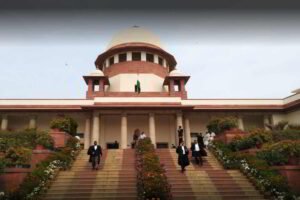Registration Act Does Not Contemplate Inquiry Into Whether PoA Holder Who Executed Document Had Valid Power Of Attorney
Case: Amar Nath vs Gian Chand
Coram: Justices KM Joseph and PS Narasimha
Case No.: CA 5797 OF 2009
Court Observation: “The inquiry contemplated under the Registration Act, cannot extend to question as to whether the person who executed the document in his capacity of the power of attorney holder of the principal, was indeed having a valid power of attorney or not to execute the document or not”
“The understanding of the Courts regarding Section 18A is also erroneous. Section 18A was enacted only to ensure that the copying process is hastened, as noticed from the Objects and Reasons. The Trial Court was right when it held that Section 18A is concerned only with the document which is presented for registration. The Trial Court clearly erred relying upon Section 18(A) to hold that certified copy however being produced of the power of attorney was in conformity with Section 18A and the High Court was equally in error to hold that Section 18A contemplated production of true copy of the power of attorney.”
For reasons, which we have indicated, Section 32(c) read with Section 33 and Section 34(2)(c) are interrelated and they would have no application in regard to the document presented for registration by a power of attorney holder who is also the executant of the document. In other words, there is really no need for the production of the original power of attorney, when the document is presented for registration by the person standing in the shoes of the second defendant in this case as he would be covered by the provisions of Section 32(a) as he has executed the document though on the strength of the power of attorney. To make it even further clear, the inquiry contemplated under the Registration Act, cannot extend to question as to whether the person who executed the document in his capacity of the power of attorney holder of the principal, was indeed having a valid power of attorney or not to execute the document or not.
“At any rate, we find it difficult to accept the case of the plaintiff that the first defendant, who is the third party, could be attributed any knowledge of the surrender or the alleged cancellation on 02.02.1987, even assuming for a moment that we could lend credence to the plaintiff’s version in this regard that the second defendant surrendered the power of attorney. We need not pronounce on the question whether the power of attorney being registered, it could be cancelled only by a registered power of attorney. This we say as even in the absence of a registered cancellation of the power of attorney, there must be cancellation and it must further be brought to the notice of the third party at any rate as already noticed. Such a cancellation is not made out”
Previous Posts
State Cannot Dictate What Decisions Can Or Cannot Be Taken By A Public Trust: Supreme Court
S. 50 Of NDPS Act- Presence Of Magistrate During Search Of Contraband Articles Not Mandatory If Accused Waives His Right: Delhi High Court Download Judgement




